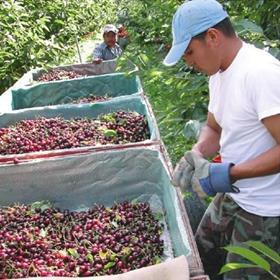
Fruit and vegetable production in California could be on borrowed time if the results of a new report by researchers at the University of California, Davis and the University of Washington are to be believed.
According to the study, climate change could reduce winter chill – a crucial climatic trigger for many types of fresh produce – making conditions no longer suitable for the production of crops such as apples, pears, peaches, plums, cherries, nectarines, walnuts and pistachios.
Winter chill is the period during which trees break dormancy after losing their leaves during the winter months, allowing them to resume growth. Receiving an insufficient amount can severely impact flowering time, according to the researchers.
The study suggested that California's winter chill could decrease by over 50 per cent during the 21st century, with some parts of the Central Valley region already showing signs of a 30 per cent reduction.
'Our findings suggest that California's fruit and nut industry will need to develop new tree cultivars with reduced chilling requirements and new management strategies for breaking dormancy in years of insufficient winter chill,' said Eikie Luedeling of UC Davis' department of plant sciences.
According to the researchers, growers could attempt to counter the changes with alterations in orchard management practices involving plant density, pruning and irrigation, while the use of agricultural chemicals could also be adopted.






No comments yet